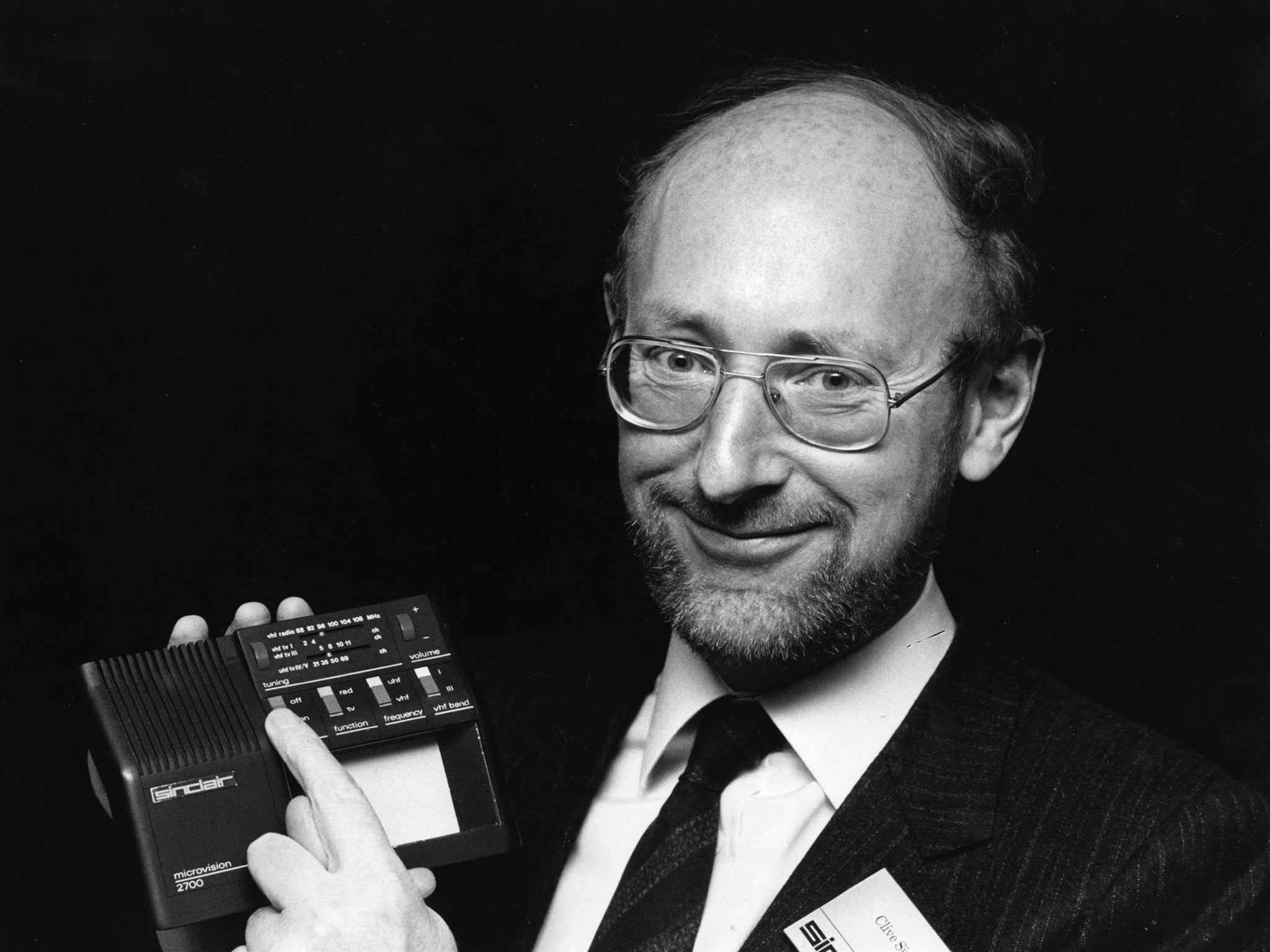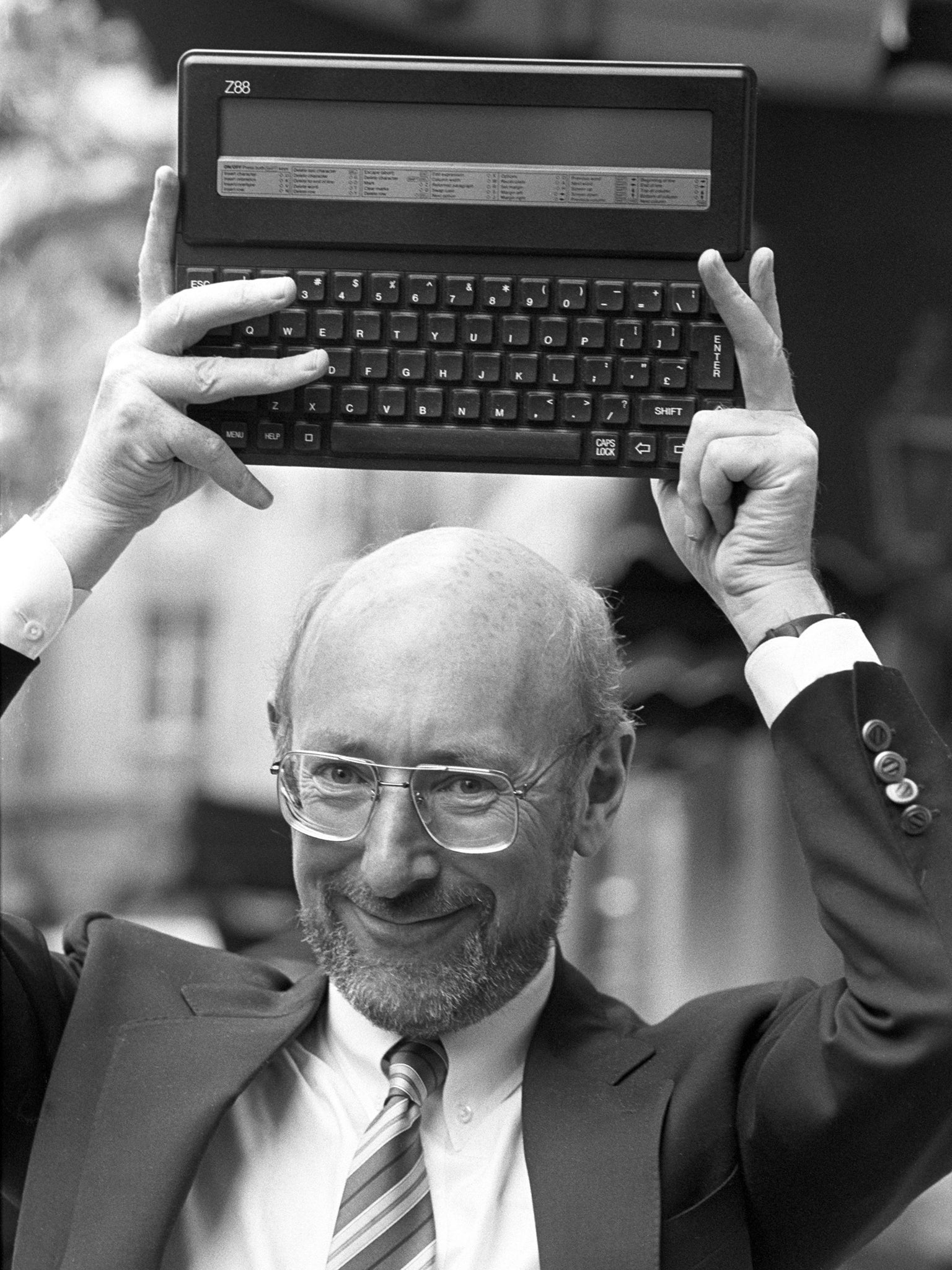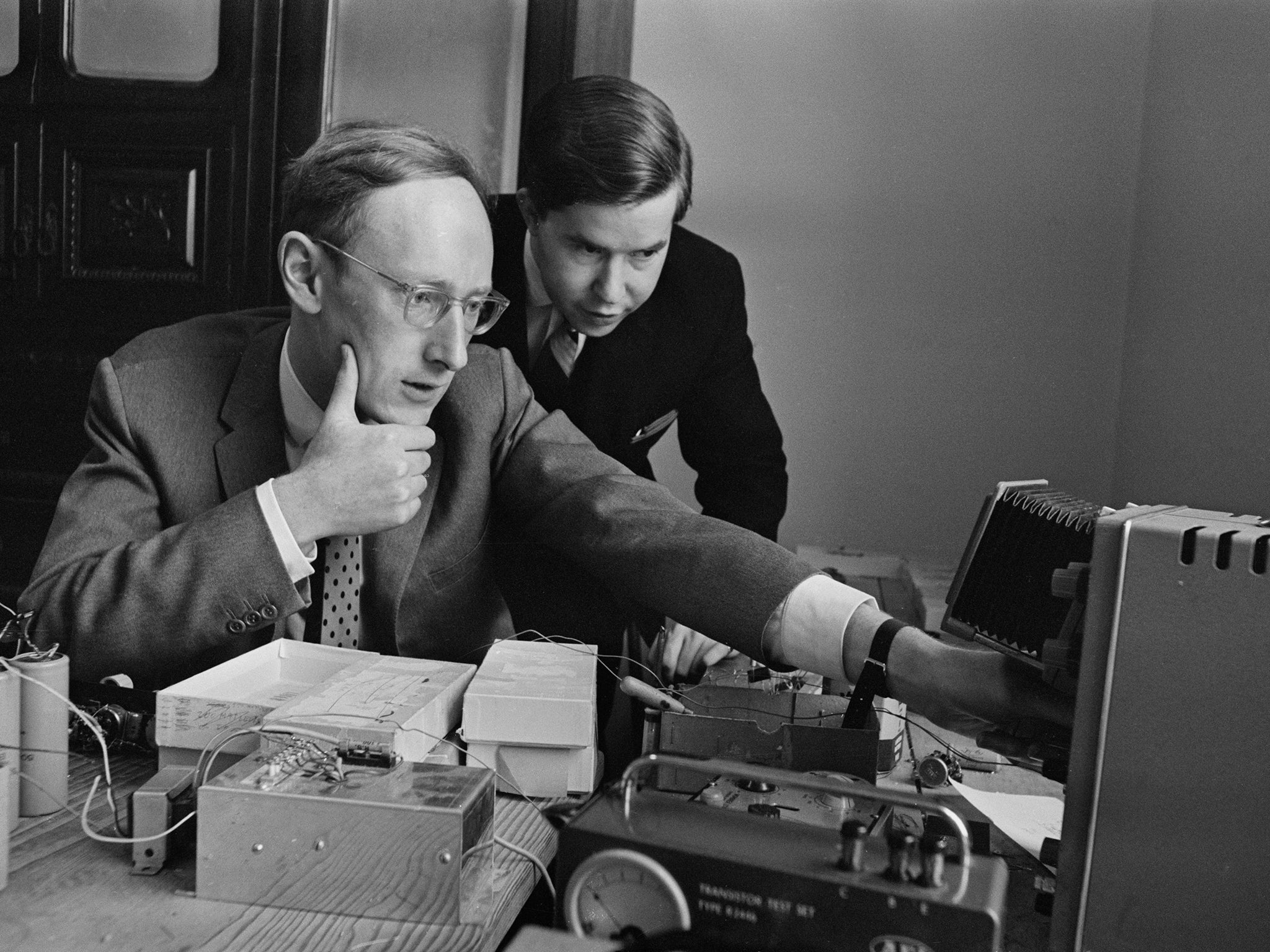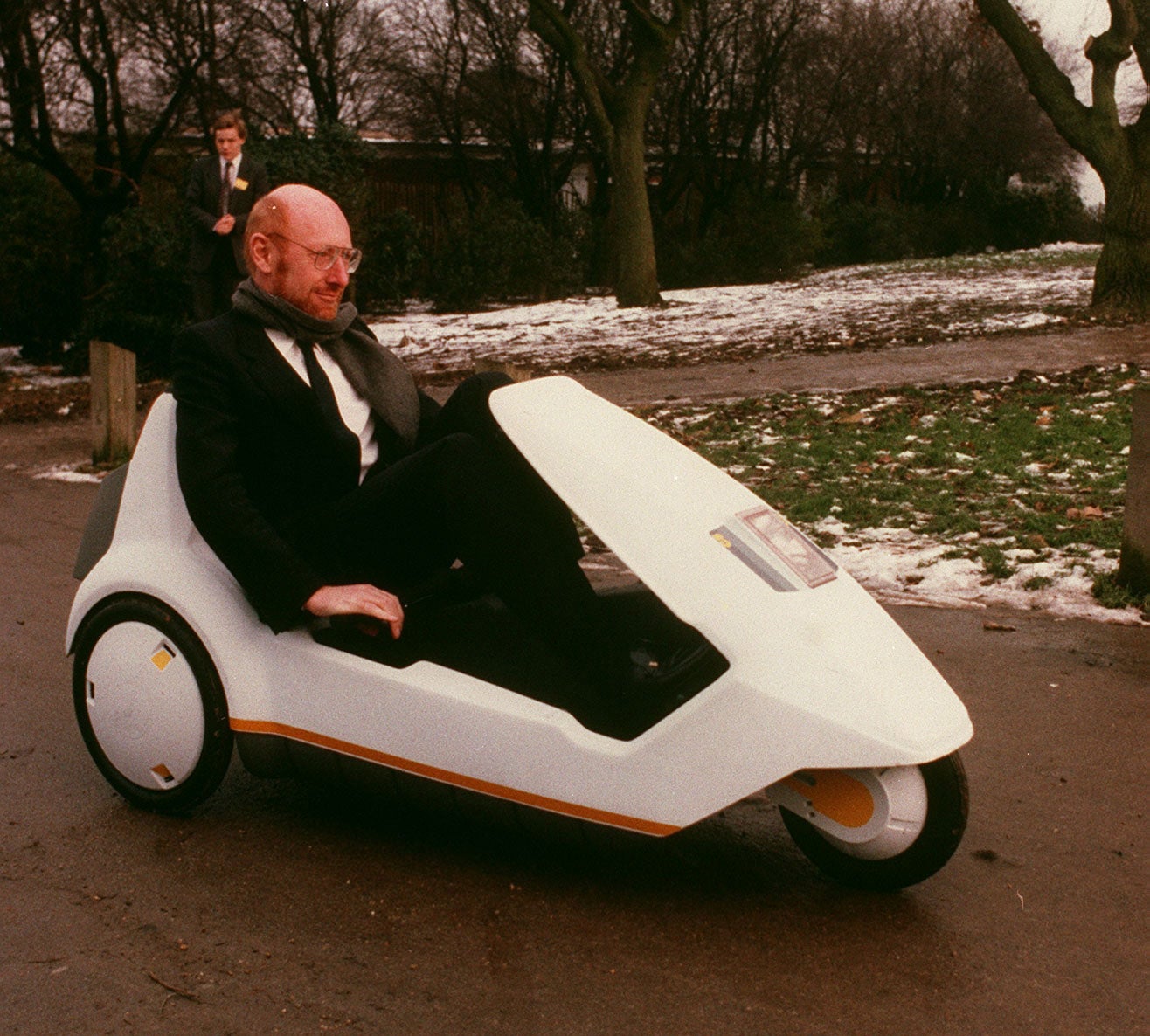Clive Sinclair: Visionary who helped create the first home computers
With a genius mind for innovation, Sinclair’s designs helped bring affordable technology to the public

Clive Sinclair was the inventor and entrepreneur who developed some of the first practical home computers in the UK and who created an electric car, well ahead of its time.
Sinclair, who has died age 81, was a visionary, renowned for his ability to innovate. However, in contrast with his US competitors, such as Apple’s Steve Jobs, Sinclair often found difficulty in executing a business plan, leaving gaps in the marketing or customer support for his products.
Clive Sinclair was born in Richmond, Surrey, in 1940. As a teenager he had dabbled in electronics, making kits that he sold by mail order through adverts in hobbyist magazines.
He founded his company Sinclair Radionics in 1961, selling his own designs of radios and hi-fi amplifiers. By the early Seventies, he had ventured into making calculators, including the Sinclair Executive, the world’s first “slimline” pocket calculator.
In 1975 he launched the Black Watch, a simple but elegant digital timepiece, costing £24.95. While the product proved to be popular, the company could not keep up with the volume of orders and the number of products being returned because of its inherent unreliability. The financial pressure of these challenges was such that the National Enterprise Board had to step in with funding to save the company from going under.
Sinclair’s debut in home computing came with the revolutionary ZX80 computer, produced through a new company, Sinclair Research. Priced at around £100, the machine was a pioneering introduction to a new world of affordable microcomputers.

Sinclair followed up the success of the ZX80 with the ZX81, with a simple keyboard and black and white graphics, which became a firm favourite. Despite having only 1,000 characters of memory, it could be used to play simple games – even chess – and taught the Basic (beginner’s all-purpose symbolic instruction code) programming language to many youngsters. The ZX Spectrum went further; with a larger 48,000 character memory and colour graphics, it boasted a wide variety of games and was sold in millions across the world.
More than three decades on, a whole new generation of computer games enthusiasts can experience the games of that era, thanks to “emulator” software, which temporarily turns a PC into a ZX Spectrum.
Working at Sinclair’s support centre in Camberley during the mid-Eighties, it was an exciting time for me to be part of this revolution in home computing. I recall taking numerous calls from parents – and their children – trying unsuccessfully to load ZX Spectrum games from cassette tape. And lunchbreaks might involve riding the newly launched C5 electric car around the warehouse.

Sinclair had long espoused the idea of cheap and environmentally friendly transport. The C5 electric car, released in January 1985, was heralded as the fulfilment of his dream. But the vehicle, based on an electric motor and a car-type battery, was limited to a top speed of 15mph and a range of only 20 miles.
The three-wheeler, plastic C5 became something of a laughing stock, featuring in many television comedy sketches. Despite Sinclair’s futuristic vision for electric transport, once again the costs of producing and supporting his invention outstripped the income from the project.
Many years later, Sinclair admitted that January had not been the best time to have launched the C5, as its batteries tended to pack up in cold weather. “It was a good idea then and now,” he told The Independent on Sunday in 2010. “We sold quite a few thousand and people loved them, but clearly I should have handled it differently. It could have succeeded. I rushed at it too much.”

The company soon stopped selling the loss-making vehicle and offloaded its computer division to its rival Amstrad, led by Alan Sugar. Sinclair’s former business partner, Chris Curry, went on to found another rival company, Acorn Computers, that made the BBC Micro, another pioneering British home computer.
Explaining his personal business philosophy in that 2010 IOS interview with Jonathan Owen, Sinclair said: “You can meet with triumph and disaster. I don't get too high when it's supposed to be looking good and I'm not knocked down when it's not looking so good. I always get on with whatever the situation is and I never feel, ‘my God, that’s the end of the world’. I just get on with the next stage.”
He had returned to his passion for transport several times with the Zike, an electric bicycle, and the Zeta, an electric motor for powering conventional bikes. The A-bike, a folding bicycle for consumers launched in 2006, relies on clever design principles, rather than complicated electronics, for its appeal.
Sinclair received a knighthood in the 1983 Queen’s birthday honours for services to the personal computer industry.
He married Anne Trevor-Briscoe in 1962 and they had three children, Bartholomew, Belinda and Crispin, before divorcing in 1985. He was subsequently married to Angie Bowness from 2010 to 2017. Sinclair is survived by his three children, five grandchildren and two great-grandchildren.
Clive Sinclair, inventor and entrepreneur, born 30 July 1940, died 16 September 2021


Bookmark popover
Removed from bookmarks